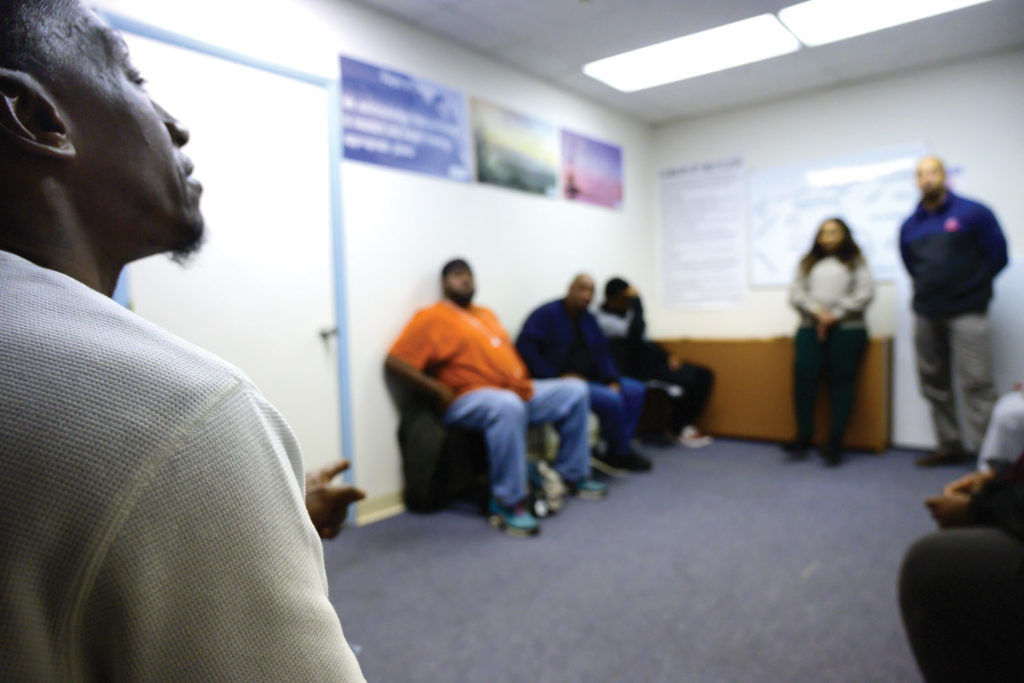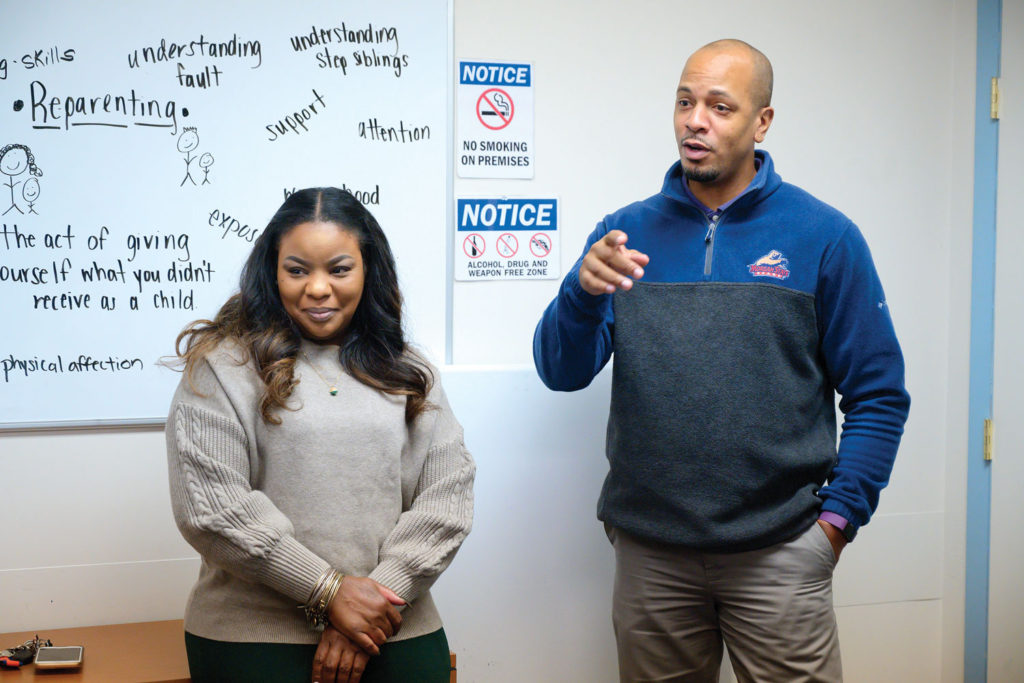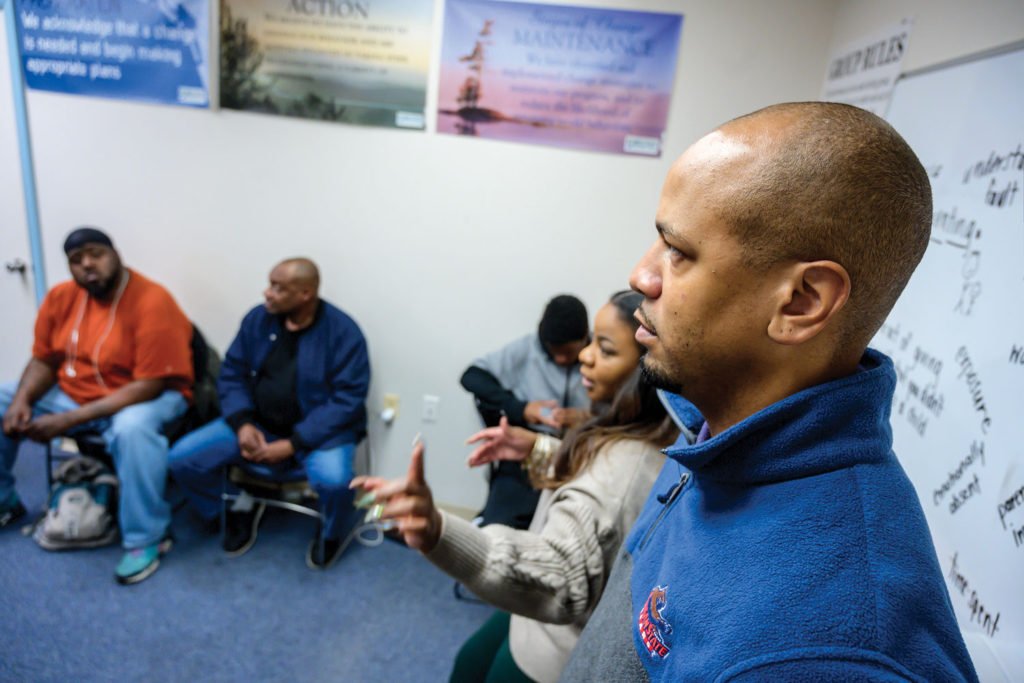By: Carla R. Jackson, Ed.D.
The tremendous increase in addiction and deaths caused by opiates over the past few years has changed the name and public face of the problem in the United States. The suffering of white, suburban Americans now figures prominently in the narrative of what is now known as “the opioid crisis,” however, the African-American, urban community has also experienced a significant increase in opioid deaths. Moreover, as with most societal ills in this country, the current epidemic of opioid addiction has made a deeper impact on the marginalized, the poor and those whom mainstream society judges most harshly.
“Addiction intersects with homelessness, poverty, mental illness and high-risk behaviors outside of substance abuse. There is survival sex and other types of behaviors that are in the service of the addiction,” said Laurens Van Sluytman, Ph.D., LCSW, assistant dean and associate professor in Morgan State University’s (MSU’s) School of Social Work.
The lack of access to treatment and rehabilitation for those affected in urban, African-American communities, and the lack of research and limited funding to address the problem there, have long challenged professionals serving the needs of these communities. These practitioners often fill the gap left by policies and public health campaigns that do not fully consider the areas’ cultural and historical nuances.
Since its founding, Morgan’s School of Social Work has been fully vested in its institutional mission to serve urban communities through a wide variety of social, economic and social justice initiatives. And under the direction of its dean, Anna McPhatter, Ph.D., the school has a long history of work with addiction. Of the more than 500 social work degree programs across the nation, the MSU undergraduate program is one of only four that require students to take a course in chemical dependence. That requirement has been a part of the curriculum for more than 25 years. Faculty have built on that foundation in recent years by creating a concentration in addiction, including required courses in treatment, pharmacology and social work ethics focused on working with people with addictions or addictive behaviors.
“Our students have to be well-trained and deeply immersed in our ethics as social workers to approach these problems and these populations in a nonjudgmental space, in order to provide the services and the linkages, and the engagement and assessment,” said Dr. Van Sluytman. “It is difficult for people to sit sometimes with someone who has an open abscess, right?”
The epidemic (of opioid addiction)
in our community is very different from what is being televised. Our students know our community, and they know the history of our community. That is what urban social work is about.
— Laurens Van Sluytman, Ph.D.,
LCSW, Morgan State University
School of Social Work
Moving the Needle
On any given day, at least 250 MSU social work students are serving as interns in agencies in Baltimore City, providing approximately 300,000 hours of free service annually, valued at about $7 million. Dr. Van Sluytman noted that although the goal of the internships is to educate students, their work must also inform the field.
“We have to be sure that our students are driven by data,” he explained. “What works? How long does it take to work?
What are the most effective interventions for this community?”
Many Morgan social work graduates return to the communities from which they hail, trained to advocate for and understand the cultural dynamics of the neighborhoods they serve.
“The epidemic (of opioid addiction) in our community is very different from what is being televised. Our students know our community, and they know the history of our community,” said Dr. Van Sluytman. “That is what urban social work is about.”
Dr. McPhatter echoed Dr. Van Sluytman’s thought that cultural awareness and sensitivity are pivotal in urban environments: “In general, the focus we’ve given to drugs, drug use and drug violence in our curriculum absolutely makes our students…more efficient at calming a situation down to get the information they need to assess and refer, without calling the police.”
Co-principal Investigators Anthony Estreet, Ph.D., and Taqi Tirmazi, Ph.D., associate professors in the School of Social Work, recently received a $1.3-million grant from the Health Resources and Services Administration (HRSA) to develop an initiative titled Graduate Interns Future Trends (G.I.F.T.). G.I.F.T. provides specialized training in mental health and substance abuse to 90 Master of Social Work (M.S.W.) students to prepare them to address the addiction epidemic facing the city of Baltimore and other urban areas. Students received $10,000 stipends to complete the training, and the School of Social Work developed extensive collaborations with community-based agencies to enhance their training. In addition, Dr. Estreet’s expertise in substance use disorders has evolved into a partnership with the federal Substance Abuse and Mental Health Administration (SAMHSA) and its Region 3 Addiction Technology Transfer Center, to provide ongoing training to community agencies and students.
To meet the goals of these initiatives, Dr. Estreet is conducting research that addresses treatment outcomes in the minority population.
“We have created the Health and Addiction Research Training Lab, which allows us to partner with M.S.W. and Ph.D. students to conduct research and to document the efforts that we are engaging in around the issues that are specifically related to addiction.”
Reflecting on the work that still needs to be done in this field, Dr. McPhatter raised Morgan’s obligation and responsibility to Baltimore.
“We’ve got to be the people at the table,” she said. “We have to develop the models, the plans and the interventions to move the needle on these challenges. As an urban research institution and an anchor university in this city, we must play a significant role in altering the narrative and trajectory of the critical issues facing our city.”









0 Comment